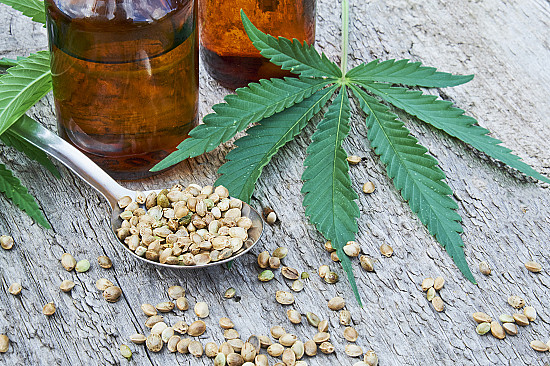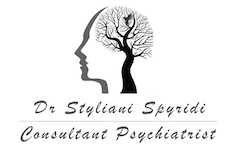By Dr. Styliani Spyridi, Consultant Psychiatrist On July 17, 2025, the World Health Organization (WHO)…

Title: Should I Use CBD for Anxiety? A Psychiatrist’s Perspective on Risks, Mechanisms, and the Evidence So Far
Over the past week, two of my patients—one with psychotic depression, another with obsessive-compulsive disorder (OCD)—asked me the same question:
“Should I try CBD for my anxiety?”
As a psychiatrist working with a wide range of mental health issues here in Limassol, Cyprus, I see how tempting it is to explore “natural” alternatives like cannabidiol (CBD). But while the buzz around CBD continues to grow, the science—and more importantly, the clinical safety data—remain limited and inconsistent.
What Is CBD and How Does It Work in the Brain?
CBD (cannabidiol) is a non-intoxicating compound derived from the cannabis plant. Unlike THC, it doesn’t cause euphoria, but it does interact with multiple neurochemical pathways that affect mood, anxiety, and emotional regulation.
1. Serotonin Modulation (5-HT1A Receptors)
CBD acts as a partial agonist at the 5-HT1A serotonin receptor, a receptor known to play a major role in anxiety and mood regulation. This is similar to how some antidepressants like SSRIs work, although the mechanism is not identical.
Evidence:
“Cannabidiol and the Serotonin 5-HT1A Receptor: An Update on Mechanistic and Clinical Aspects” – International Journal of Molecular Sciences, May 2021
2. Endocannabinoid System Regulation
CBD enhances anandamide signaling by inhibiting FAAH (fatty acid amide hydrolase), the enzyme that breaks anandamide down. Anandamide binds to CB1 receptors, which influence stress, mood, and compulsivity.
Evidence:
“Cannabidiol as a Potential Treatment for Anxiety Disorders” – Neurotherapeutics, October 2015
CBD and Anxiety: The Risks You Might Not Hear About
Despite promising mechanisms, CBD is not risk-free, especially for individuals with psychiatric histories or complex anxiety disorders. Here’s what you need to know:
1. High Doses May Worsen Anxiety
Paradoxically, CBD can worsen anxiety at higher doses. While low doses have shown calming effects in some studies, escalating doses have been linked to symptoms like increased anxiety, irritability, and emotional blunting.
Complicating this further is the difficulty in determining an effective or safe dose. Over-the-counter CBD products vary widely in potency and purity, and the lack of standardization makes dosing extremely unpredictable, especially without clinical guidance.
Source: “Cannabidiol as a Potential Treatment for Anxiety Disorders” – Neurotherapeutics, 2015
2. Psychotic Symptoms in Vulnerable Individuals
CBD’s influence on dopamine and glutamate systems raises red flags for individuals with:
A personal history of psychosis
A family history of schizophrenia, schizoaffective disorder, or bipolar I disorder
In these cases, CBD may unmask or worsen psychotic symptoms, particularly if used unsupervised.
Source: “Cannabidiol and the Serotonin 5-HT1A Receptor” – IJMS, 2021
3. Interactions with Psychiatric Medications
CBD is metabolized by liver enzymes (CYP450), which also metabolize many psychiatric drugs. This leads to potentially dangerous interactions:
Toxic levels of SSRIs, antipsychotics, or benzodiazepines
Reduced therapeutic effects if metabolism is accelerated or blocked
Source: “Adverse Effects of Cannabidiol: A Review of Clinical Data” – Pharmaceuticals, March 2020
4. Sedation, Cognitive Slowing, and Fatigue
Common side effects—especially at higher doses—include drowsiness, slowed thinking, poor concentration, and fatigue. This can worsen symptoms in patients with depression, burnout, or ADHD.
Source: FDA Safety Report on Epidiolex (CBD), 2020
5. Gastrointestinal Distress
CBD has been linked to nausea, diarrhea, appetite loss, or gain, which can be problematic for patients with mood-related eating disturbances or gastrointestinal comorbidities.
Source: “Adverse Effects of Cannabidiol: A Review” – Pharmaceuticals, 2020
6. Suicidality and Mood Instability
Though rare, worsening depression and suicidal ideation have been reported in clinical trials involving CBD, especially in high-dose or long-term use.
Source: FDA Clinical Summary of Epidiolex Trials, 2020
Conclusion: A Promising Molecule, But Not Ready for Everyone
CBD has potential. But for now, it is not an evidence-based treatment for anxiety disorders, especially complex conditions like panic attacks, OCD, or mood disorders with psychotic features.
Its mechanisms are promising—but also highly individualized. Until dosage guidelines are standardized and more large-scale studies are done, CBD should not be used casually or without psychiatric oversight, particularly in vulnerable populations.
If you’re considering CBD, please consult a mental health professional.
Dr. Styliani Spyridi
Consultant Psychiatrist | Private Mental Health Clinic
Limassol, Cyprus



